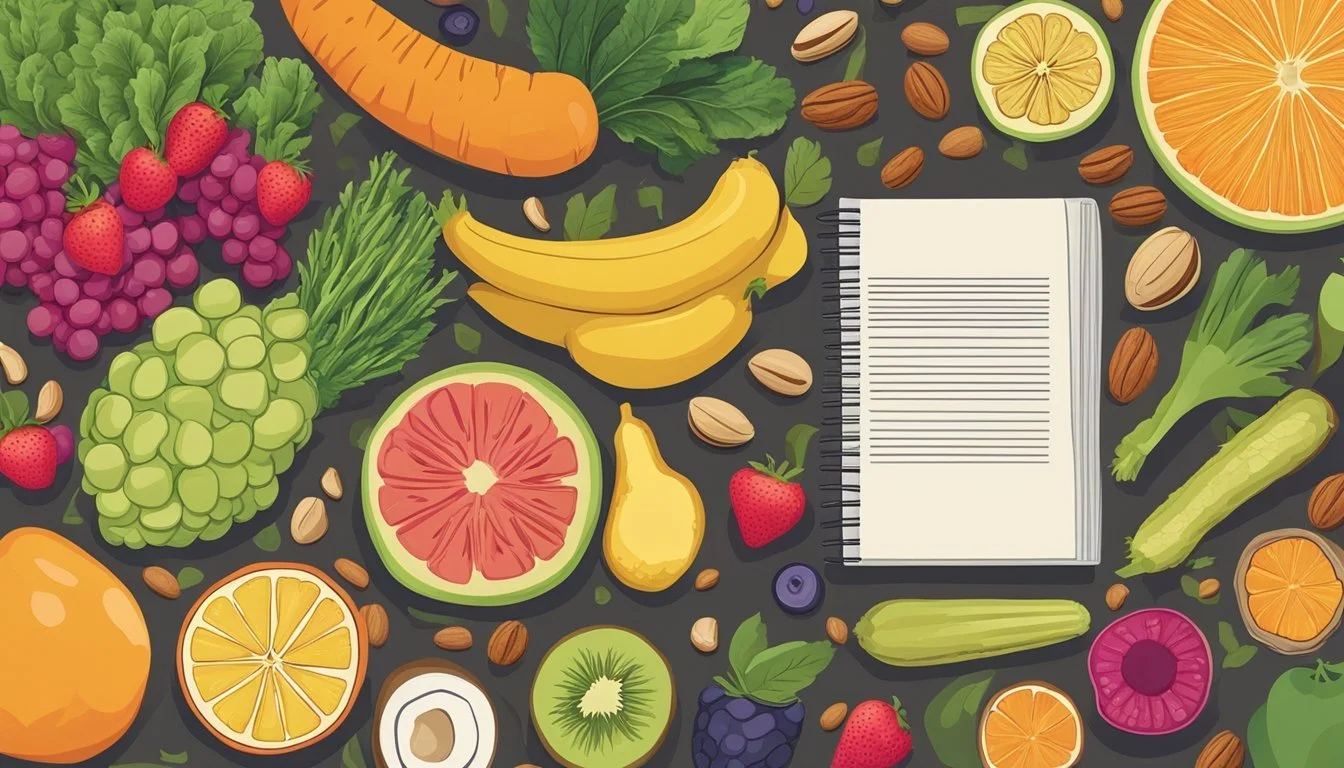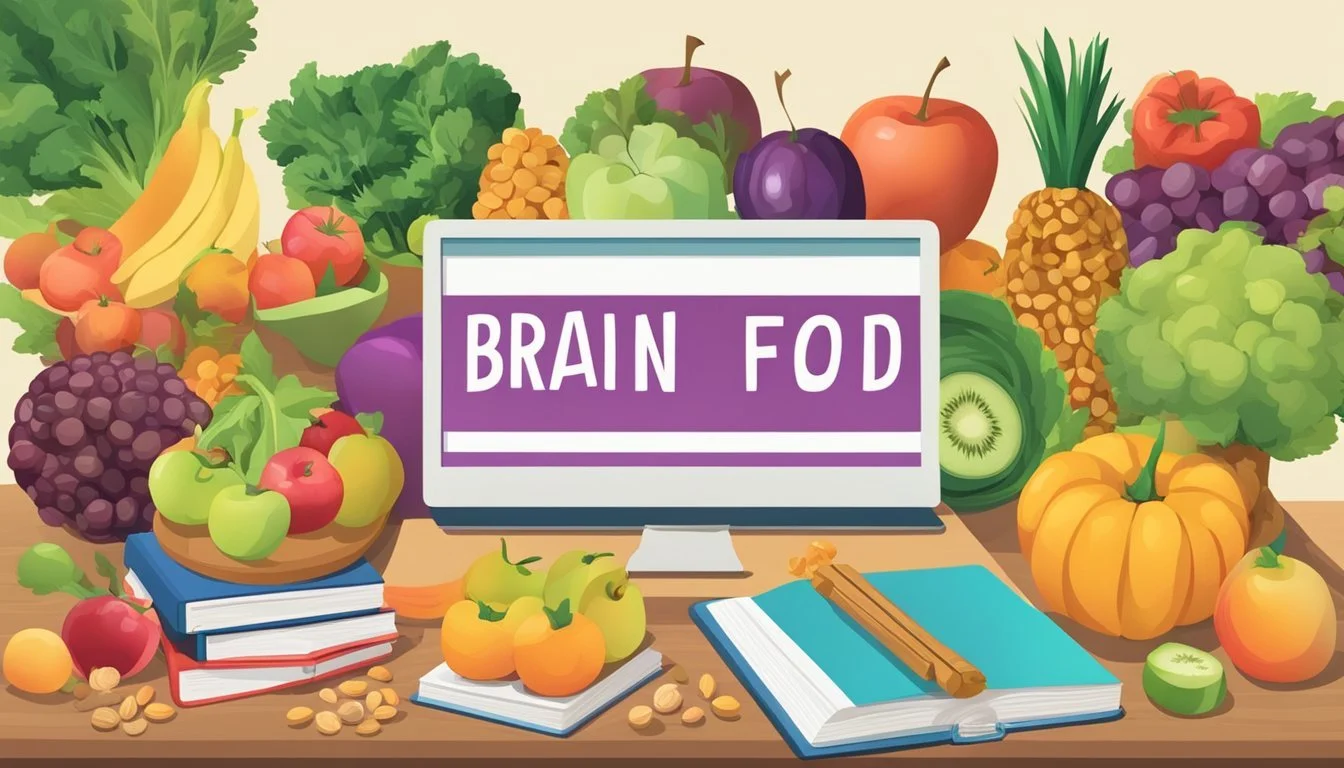The Myth of the "Brain Food"
Separating Fact from Fiction in Nutritional Neuroscience
The concept of 'brain food' has intrigued many, with the promise of enhanced cognitive abilities through diet alone. Certain foods, often rich in nutrients like omega-3 fatty acids, antioxidants, and vitamins, are frequently touted for their supposed ability to improve brain function. Fish, for instance, is often branded as a means to boost intelligence and speed up cognition. While a balanced diet is undeniably crucial for overall health, including brain health, the idea that particular foods can drastically increase mental prowess is a topic of debate among nutritionists and scientists.
Foods considered good for the brain typically contain elements that support brain health, such as the promotion of blood flow to the brain, the reduction of inflammation, and the prevention of damage by free radicals. These foods, among others, are part of a balanced diet that supports general well-being. However, the belief that these foods can directly translate to quantifiable increases in intelligence or instant cognitive improvement is misleading. Brain function is the result of complex biochemical processes and neural connections that are not solely dependent on dietary intake.
It is essential to understand that there is no magic 'brain food' that will unlock extraordinary cognitive enhancements over a short period. Researchers emphasize that while nutrition plays a role in maintaining brain health over the lifespan, no single food is a panacea for the mind. The brain benefits from a variety of nutrients, and maintaining a diverse and healthy diet is more effective than focusing on specific 'superfoods.' A realistic perspective focuses on the cumulative effects of a healthy lifestyle, which includes a balanced diet, rather than expecting immediate results from individual food items.
Examining the Concept of Brain Foods
The term "brain food" implies that certain foods have the power to enhance brain function. This section explores what constitutes a brain food, looks back at historical beliefs, and addresses the claims linked to popular brain-boosting foods.
Defining 'Brain Food'
Brain food generally refers to foods rich in nutrients believed to support brain health and cognitive function. These typically include omega-3 fatty acids, antioxidants, vitamins, and minerals. Advocates suggest that consuming these foods can lead to better memory, focus, and overall mental performance.
Historical Perspectives
Throughout history, various cultures have touted certain foods as elixirs for the mind. For example, ancient Greeks included meat and fish in their diets to enhance cognitive capabilities, as meat contains iron, zinc, vitamin B12, and essential fatty acids. The link between diet and cognition has always been a subject of interest, evolving with scientific understanding.
Popular Brain Foods and Their Claims
Certain foods are often identified as beneficial for the brain. Here, some commonly cited brain foods are listed alongside the nutrients they contain and the purported benefits.
Fish: Rich in omega-3 fatty acids like DHA, critical for nerve cell development and associated with healthy brain growth.
Dark Leafy Green Vegetables: Providers of vitamins, minerals, and antioxidants—believed to fight cognitive decline.
Berries: Contain antioxidants such as flavonoids, which are thought to improve communication between brain cells and reduce inflammation.
Water: Essential for maintaining hydration; dehydration can impair concentration and cognitive function.
Nutritional Science Behind Brain Foods
The brain requires specific nutrients to maintain its function and health. Certain foods containing these nutrients can support cognitive processes.
Essential Nutrients for Brain Function
The brain’s complex machinery operates optimally with a diverse set of nutrients that include vitamins, proteins, and minerals. Proteins break down into amino acids, which are crucial for neurotransmitter synthesis, affecting mood and cognition. B-group vitamins, such as B6, B12, and folic acid, are vital for maintaining neurological function and the creation of RNA and DNA.
How Fatty Acids Influence Cognitive Health
Fatty acids, particularly omega-3 fatty acids, play a significant role in brain health. Two important types of omega-3s, DHA and EPA, are integral to the structure and function of cell membranes.
DHA: This fatty acid is a major structural component of the cerebral cortex, associated with cognitive function.
EPA: Although present in smaller amounts in the brain, EPA influences cell signaling and the immune system.
Antioxidants and Their Role in Brain Health
Antioxidants mitigate oxidative stress, thereby protecting brain cells from damage. They are commonly found in foods like berries, nuts, and leafy greens. Here is how key antioxidants support the brain:
Vitamin C and E: These vitamins safeguard neurons from the toxic effects of free radicals.
Flavonoids: These compounds, found in dark chocolate and certain fruits, enhance memory and learning by promoting blood flow to the brain.
Assessing Claims and Evidence
In the quest to enhance cognitive functions such as memory and concentration, numerous foods have been labeled as "brain boosters." This section critically evaluates the scientific backing of these claims to separate credible evidence from popular myths.
Memory Enhancement and Concentration
The assertion that certain foods can improve memory and concentration has anchored itself in popular discourse. Omega-3 fatty acids, for example, are often touted for their neurological benefits. Studies suggest that regular consumption of these fatty acids, commonly found in fish, may support cognitive functions. However, the degree of improvement in healthy individuals remains an area for further research.
Reviewing Studies on Brain Foods
A critical review of existing scientific literature is crucial in understanding the relationship between diet and cognitive health. Antioxidants, present in various fruits and vegetables, are frequently studied for their role in preventing neural damage. While some studies indicate a correlation, their methodologies and scale can vary widely, leading to inconsistencies in results.
Differentiating Facts from Myths
Amidst the clamor for miracle brain foods, differentiating evidence-based facts from hyperbolic myths is essential. While certain nutrients have been identified to play a role in brain health, no single food or supplement acts as a magic bullet for cognitive enhancement. Balanced diet practices and overall lifestyle choices often prove to be more influential than individual food items.
Brain Foods in the Diet
When considering nutrient-rich foods that support cognitive function and brain health, certain categories stand out in the diet. These foods contain essential fatty acids, antioxidants, and vitamins crucial for the brain.
Fish and Omega-3 Rich Foods
The brain relies on omega-3 fatty acids for the maintenance of healthy brain cells, and fish such as salmon (What wine goes well with salmon?) are rich in these nutrients. Regular consumption of omega-3 rich foods is associated with better brain function and reduced decline in brain health.
Top Sources:
Salmon
Mackerel
Tuna
Berries as a Source of Antioxidants
Berries, including blueberries, strawberries, and blackberries, are loaded with antioxidants. These compounds can mitigate oxidative stress and inflammation, which are linked to brain aging and neurodegenerative disorders.
Key Berries:
Blueberries
Strawberries
Blackberries
Nuts, Seeds, and Healthy Fats
Nuts and seeds provide healthy fats, such as monounsaturated and polyunsaturated fats, including omega-3s. These fats are essential for brain health, and nuts like walnuts have been found to support good brain function.
Examples:
Walnuts
Almonds
Chia seeds
Flax seeds
Vegetables and Fruits High in Vitamins
Vegetables like broccoli are high in vitamins and antioxidants. These nutrients can protect the brain against damage and support cognitive function. Colorful fruits and vegetables typically have higher concentrations of these beneficial compounds.
Vegetables and Fruits:
Broccoli
Spinach
Oranges
Tomatoes
Specific Foods and Their Nutrients
In consideration of brain health, several specific foods come to the fore due to their nutrient profiles, positively impacting cognitive function and overall brain wellness.
Salmon and Omega-3 Content
Salmon is celebrated for its high concentration of omega-3 fatty acids, which are crucial for brain health. These fats contribute to the structural integrity of brain cells and are involved in cognitive function.
Types of Omega-3s found in Salmon:
Eicosapentaenoic acid (EPA)
Docosahexaenoic acid (DHA)
Both EPA and DHA are linked to reduced inflammation and lower risk of chronic diseases, including cognitive decline.
Blueberries and Antioxidant Properties
Blueberries are laden with potent antioxidants. These natural substances support the brain by combating oxidative stress, which can damage cells and DNA, potentially impacting brain health negatively over time.
Notable Antioxidants in Blueberries:
Flavonoids
Anthocyanins
Research suggests that the antioxidants in blueberries may improve memory function and delay short-term memory loss.
Nuts, Beans, and Protein Levels
Nuts and beans are nutritious powerhouses, high in protein and other nutrients essential for brain health. Protein is a vital building block for neurotransmitters, the chemicals that brain cells use to communicate.
Brain-Benefiting Nutrients in Nuts and Beans:
Essential fatty acids
B vitamins
These nutrients can aid in maintaining proper neuron structure and cognitive processes.
Dark Chocolate and its Benefits
Dark chocolate has a unique profile, containing several compounds that may benefit the brain. Aside from its antioxidant properties, it also has natural stimulants like caffeine, which can enhance focus and concentration.
Mood-Enhancing Compounds in Dark Chocolate:
Flavanols
Caffeine
Theobromine
These components have been associated with improved mood and cognitive performance in some studies.
Considerations for Children and Adolescents
In this section, we explore the role of nutrition in the cognitive development of children and adolescents, examine the concept of brain foods within their diets, and discuss strategies for fostering healthy eating habits.
Impact of Nutrition on Development
Nutrition plays a crucial role in the developmental years, with children and adolescents requiring a balanced intake of essential nutrients for proper brain development. Adequate consumption of omega-3 fatty acids, for instance, is associated with improved cognitive functions. Key vitamins and minerals, such as iron, iodine, and vitamin B12, are directly linked to brain health and the prevention of cognitive delays.
Brain Foods in Kids' Diet
A diet rich in fruits, vegetables, whole grains, low-fat dairy, and lean meats can provide children with a steady supply of energy and essential nutrients. Incorporating foods high in antioxidants and fatty acids can help support brain health. Parents and caregivers should be aware of the potential impact of sugary drinks and processed foods which can lead to energy spikes and crashes, affecting a child's focus and attention.
Encouraging Healthy Eating Habits
Establishing healthy eating habits early is vital. Children who consume a balanced diet tend to have better eating patterns later in life. Practical strategies include:
Creating routines: Consistent meal and snack times help regulate metabolism and improve concentration.
Involving children in meal preparation: This encourages an interest in healthy foods and nutrition.
Educating on food choices: Teaching kids about the benefits of certain foods can empower them to make better decisions.
By addressing these considerations, one can support the cognitive development and overall wellbeing of children and adolescents through informed dietary choices.
Practical Tips and Advice
Evidence suggests that certain foods may support brain health. This section provides practical guidance on how to include these items in a diet, reduce inflammation, and achieve a balanced diet.
Incorporating Brain Foods into Daily Meals
One can introduce foods known to benefit brain function into daily meals without much complication. Eggs are versatile and can be incorporated into breakfast scrambles, sandwiches, or salads for a nutritious meal, providing essential omega-3 fatty acids and choline, which support brain health. Likewise, cheese, a source of calcium and vitamin B12, can easily be added to a variety of dishes, from sprinkling over vegetables to melting in a panini.
Strategies for Reducing Inflammation
Chronic inflammation can have adverse effects on brain health. Introducing anti-inflammatory foods such as those rich in Vitamin C can be beneficial. Including fruits like oranges, strawberries, and vegetables like bell peppers in one's diet helps maintain a robust defense against inflammation. It’s also advisable to cut down on foods high in saturated fats and sugars, as they can contribute to inflammation.
Balanced Diet Considerations
A balanced diet is critically important for overall brain health. Foods that provide a wide range of nutrients can help ensure the brain gets the necessary support. This means consuming a variety of vegetables, fruits, whole grains, lean proteins, and healthy fats. Balance and moderation are key, with portion control being imperative to prevent nutritional excesses and deficiencies that can harm the brain.





